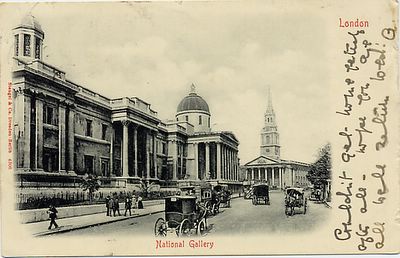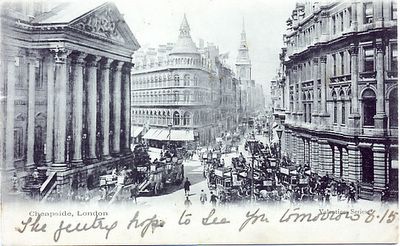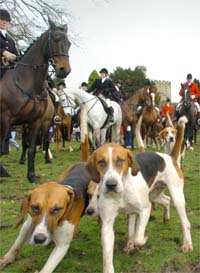We Get Postcards
Recently, we linked to some historic Clutterbuck letters submitted by Timothy Walker, who has now sent in some interesting Clutterbuck postcards addressed over a hundred years ago to Clutterbucks in Stroud, Gloucestershire.
1). Dated 1902. Posted Goucester. To Miss Clutterbuck, Russell Street Stroud, Glos. A photo of Gloucester Cathedral with a personal note and signed N.R.P.


2) Dated 1902. Posted what appears to be SORN BRW. To Mrs A. Clutterbuck Russell Street Stroud Glos. A photo of National Gallery London. with a personal note and signed G.


3) Dated 1903. Posted Bridgewater Somerset. To Mrs Clutterbuck 2 Russell Street Stroud Gloucestershire. A photo of Cheapside London. With a personal note and signed M.


"These three postcards were purchased in the mid 1990s at a car boot sale by a friend of mine, who knew of my interest in the family of Clutterbuck," wrote Tim Walker, a Cluterbuck descendant and genealogy researcher who sent us these wonderful digital images.
Thanks so much, Tim. It would be interesting to learn from Clutterbucks who might be reading this blog, if they are perhaps related to the people who sent or received these postcards.


